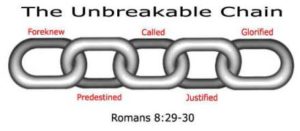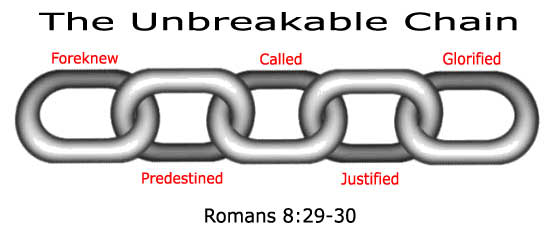 Historically, the church has upheld the doctrine that God from eternity past, before the creation of the world, has predestined individuals to receive salvation. These individuals are elected “in Christ”. However, Arminians, beginning from the 17th century, have argued that election is corporate rather than individual. Arminians object to individual election since it appears to them that God is arbitrary and unjust when he chooses and saves some individuals, but bypasses other individuals. But, by the same token, the same objection also applies to corporate election if God chooses to save a group of people and bypasses other groups. More importantly, the hermeneutics of the Arminian view of corporate election becomes evidently inadequate when it is tested with a close reading of two crucial biblical passages found in Ephesians 1 and Romans 9.
Historically, the church has upheld the doctrine that God from eternity past, before the creation of the world, has predestined individuals to receive salvation. These individuals are elected “in Christ”. However, Arminians, beginning from the 17th century, have argued that election is corporate rather than individual. Arminians object to individual election since it appears to them that God is arbitrary and unjust when he chooses and saves some individuals, but bypasses other individuals. But, by the same token, the same objection also applies to corporate election if God chooses to save a group of people and bypasses other groups. More importantly, the hermeneutics of the Arminian view of corporate election becomes evidently inadequate when it is tested with a close reading of two crucial biblical passages found in Ephesians 1 and Romans 9.
Ephesians 1
Arminianism reduces God’s election to a generic, group election, in contrast to Paul’s teaching of election of specific individuals in Christ:
(1) Arminians assert that God’s election described in Eph.1:4 is based on a generic criterion, that is, foreseen faith. However, the focus of the text is on God’s act of choosing some individuals rather than on some individuals’ act of choosing Christ. It says nothing about foreseen faith. Elsewhere, Paul argues in Rom. 9:11 that faith is the result for been chosen. It is not the reason for being chosen. Evidently, Arminians have smuggled the idea of foreseen faith into the text. As a result they have reversed Paul’s understanding of the relationship between election and faith Continue reading “The Unbreakable Chain of Salvation Part 3 – The Case for Individual Election in Ephesians 1 & Romans 9”



